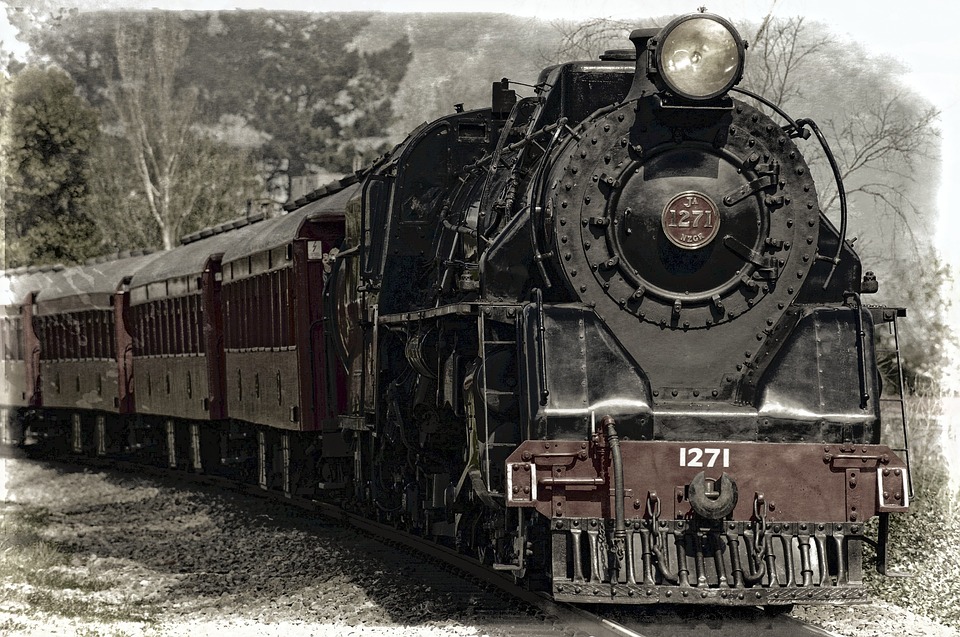Unit 9 Age of Revolution World History Guided Reading and Vocabulary
 Late Modern English (c. 1800 – Present)
Late Modern English (c. 1800 – Present)
The English underwent more huge changes after 1800. The Early Modernistic catamenia came to an terminate every bit new influences emerged.
Although the pronunciation and grammar of Early Modernistic English language continued into the late modern age, the vocabulary of English grew considerably, leading to the creation of Late Modernistic English language.
The main changes in vocabulary during the Belatedly Modern menstruation were due to the industrial revolution, scientific advancements and colonialism.
The Expansion of the British Empire
More new words seeped into the English language after the twelvemonth 1700. This is considering the English linguistic communication started to spread all around the world due to the development of Britain's new colonies.
As the British Empire grew, English words were captivated into the languages of the colonised countries, spreading the English linguistic communication far and wide.
At the aforementioned time, the English language expanded to accommodate many new foreign words within its vocabulary. For case, Late Modern English contains many words borrowed from Hindi and other Indian languages, such as 'pajamas', 'bungalow' and 'shampoo'.
In fact, English contains some words from most other languages: from the Finnish 'sauna', German language 'kindergarten' and Japanese 'tycoon', to the Russian 'balaclava', Sanskrit 'jungle', Swahili 'colossal' and West African 'assistant'.
Although Late Modern English includes words from many languages, the largest number of words come from French and Latin.
Maritime Linguistic communication
In connection with Britain's colonial explorations, the words and phrases of sailors ('seaspeak') were adopted into the mainstream vocabulary of Belatedly Modern English language.
Many English language phrases come from maritime roots, including: 'three sheets to the wind', 'shut quarters', 'the biting stop', 'cut and run', 'hand over fist, 'fathom out, 'in the offing, 'taken aback', 'high and dry' and of class, 'walk the plank'.
The Industrial Revolution
Until the early 18th century, people lived off the land and most people worked in agriculture. Still, large developments in technology between c. 1760 and 1830 took Britain into an industrial revolution.
The industrial revolution had a strong affect on the English language linguistic communication with many new words coined from these technological advancements. New words were invented to proper name new industrial techniques, machinery, products and technology.
Some words that entered the language around this time include: electricity, photographic camera, telegraph, pulley, train, engine, reservoir and combustion.
New words also came about by using old words together in new ways to create a new meaning. For case: typewriter, horsepower, airplane and railway all arrived in Tardily Mod English.
The Advancement of Science
In the 17th and 18th centuries, new scientific discoveries meant that more new words had to exist invented to draw the new findings; many of the words of this industrial age were borrowed from Latin and Greek.
Words borrowed from French, Latin or Spanish may have been already borrowed at a previous time in English language history, causing a new meaning and/or pronunciation to develop.
For example, the word 'chef' and the word 'chief' are both borrowed from French. 'Chef' was borrowed by Late Modern English language, whereas 'chief' came into the language during the time of Middle English. This is why the same root has resulted in 2 distinct words with dissimilar meanings in English today.
![1. Marie Curie by Unknown, Tekniska museet [CC BY 2.0 (https://creativecommons.org/licenses/by/2.0)], via Wikimedia Commons Late Modern English - Marie Curie - medical advancement](https://www.myenglishlanguage.com/wp-content/uploads/2018/06/marie-curie.jpg)
1. Marie Curie, physicist and chemist who conducted pioneering research on radioactivity – image source
Greek and Latin Roots
Many of the new words that came into the English language during the scientific revolution have a Latin or Greek root. For example: 'oxygen', 'nuclear' and 'vaccine'.
New words also came from the field of medicine, such equally 'ambulance', which has a French root but was originally derived from Latin.
Nosotros can run across the influence of classical languages on new vocabulary today used in the earth of science and computers, including 'byte', 'micro' and 'cyber'.
The Military and Linguistic communication
Wartime has always introduced many new words into the English vocabulary.
In the Late Mod historic period, the Offset World War and Second Globe War added many new words and slang phrases, which were used originally by soldiers and came directly from the trenches.

The 2 World Wars introduced the words: 'booby trap', 'handbasket case', 'to be in a flap', 'zigzag', 'souvenir', 'browned off', 'gubbins', 'flak', 'fed up', 'dud', 'lousy', 'crummy', 'cushy', 'no man's land', 'dekko' and 'Blighty' (both these last words are derived from Hindi).
Tardily Modern English too adopted other war machine-derived words that we use today, including: 'ambush', 'spearhead', 'melee', 'radar', 'siege', 'cover-up' and 'sortie', along with the aeronautical-related terms 'nose dive' and 'landing strip'.
Share your thoughts on late modern English
Do y'all recollect the electric current English language language will evolve once again into some other age of English? What will this Post-Late Mod English language sound like?
Do you lot know whatsoever other English words that accept a military machine root? Or a maritime root?
How you remember spellings and pronunciation will modify in the future?
Let us know your thoughts well-nigh linguistic communication development in the comments.
Attributions
- Marie Curie past Unknown, Tekniska museet [CC BY 2.0], via Wikimedia Commons
Source: https://www.myenglishlanguage.com/history-of-english/late-modern-english/
Enregistrer un commentaire for "Unit 9 Age of Revolution World History Guided Reading and Vocabulary"